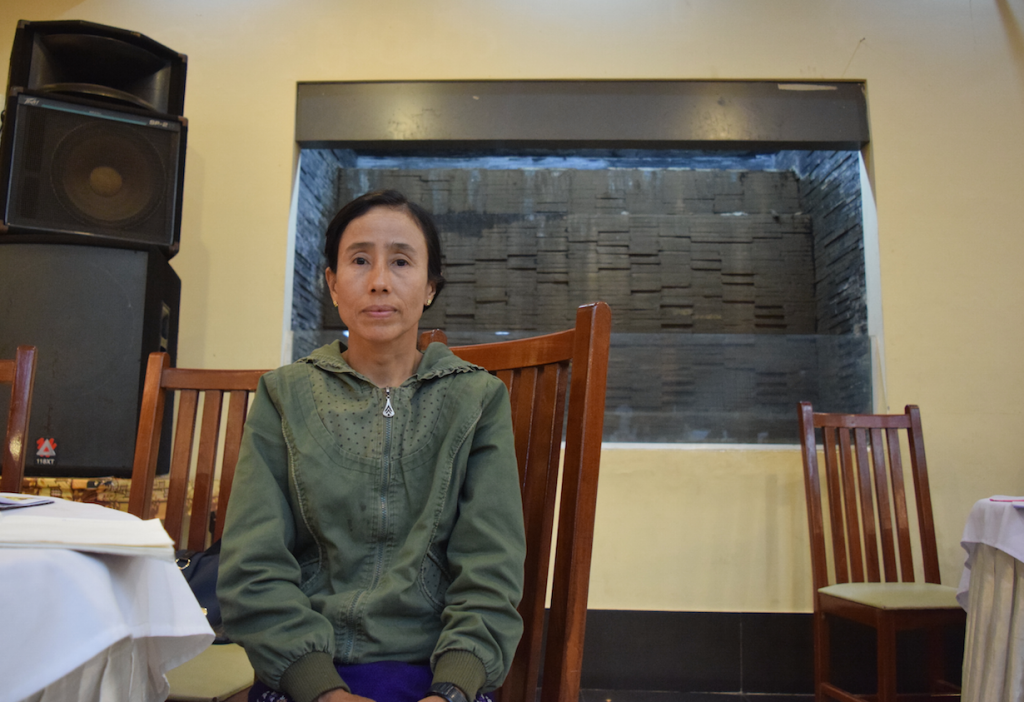A coalition of 422 civil society and environmental groups are calling on the government to halt all proposed coal and large-scale hydropower projects, citing a raft of negative impacts on vulnerable local communities.
At a Rangoon press conference hosted by EarthRights International on Tuesday, the campaigners urged the government to pivot toward community-led renewable energy programmes, as policymakers in Naypyidaw seek to develop the national power grid. The conference was the culmination of a two-day “Green Energy Forum,” led by representatives of some of the organisation that signed on to Tuesday’s call to action.
Aung Myint from the Renewable Energy Association Myanmar said current energy and development plans focus too heavily on finite coal and destructive hydropower dams, resulting in environmental degradation and community tensions, and fuelling ethnic conflict.
“We all know Myanmar is trailing behind the world in regard to energy, and the existing national energy plan focuses too much on big hydro projects and coal. What about renewable energy? We can learn from other countries’ experiences — but we need the technology and investment to implement it.
“The consequences of coal and hydro have been clear: human rights violations and environmental destruction. The current government needs to include people and CSOs at every level of decision-making,” he said.
Many of the country’s major proposed dam projects are sited in ethnic states already grappling with ethnic conflict. In a press release, the coalition said, “The NLD [National League for Democracy] should place a moratorium on all proposed mega-projects if it hopes to end decades of civil war.”
But civil conflict and ruined habitats have not been the only victims of “development” in Burma’s ethnic regions. Palaung woman and activist Amar Sein said the youth of her community have fallen prey to the lure of drugs and crime to escape the idleness of lives without employment or education opportunities following the arrival of mega dam projects along the Salween River in 2013.

She told DVB that many have even attempted suicide to escape the hopelessness of their situation.
“When the dam came in, the young people lost their livelihoods [agricultural work] and had to go outside to seek manual labour. It’s been three years since that happened. They’ve become depressed and now use alcohol and drugs; the husbands too, and they get into conflict with their wives.
“One man’s farm became flooded as a result of the dam, and he was at a loss as to how to feed and support his elderly parents. He became depressed and he eventually committed suicide,” she said.
The CSOs’ demands echo those of the Kuki Human Rights Organisation in late November. Villagers from the ethnic group living in Sagaing Division collected more than 3,000 signatures on a petition that called for gold mining in the region to cease.
Villagers told DVB that the commencement of gold mining in their region had brought with it a raft of social problems, including alcoholism and domestic violence in addition to damaging the health of the Chindwin River, the fourth-largest in Burma.
Pressure is mounting on the government to step up and introduce effective environmental protection legislation. A 2015 report released by the UN’s Food and Agriculture Organization revealed that Burma nabbed the unenviable third-highest rate of annual deforestation globally, lagging behind only Brazil and Indonesia.
According to the report, the accelerating pace of development in Burma means the country loses a chunk of forest approximately the size of Brunei annually. This loss represents a devastating blow to the livelihoods of many of the country’s ethnic minorities — and makes the nation more susceptible to the impacts of extreme weather phenomena such as El Nino.
The NLD-led government started strong in 2016 by introducing a ban on the lucrative logging industry nationwide, but forests, ecosystems and species unique to Burma are just as endangered by the slew of development projects in the energy sector as they are by logging, environmental groups warn.
Reflecting on the havoc wrought on her community by the now-stalled Myitsone dam project in Kachin State, activist Ru La implored the government to reorient its priorities toward the people most-affected by the expansive energy industry.
[related]
“Before they got elected, they came and met with us, saying, ‘It’s time for change.’ That is why we voted for them. But what has changed? They aren’t implementing any reform for us,” she said.
“We have lost almost everything. On behalf of all the people of Kachin State, I ask them to completely end the Myitsone project.”



